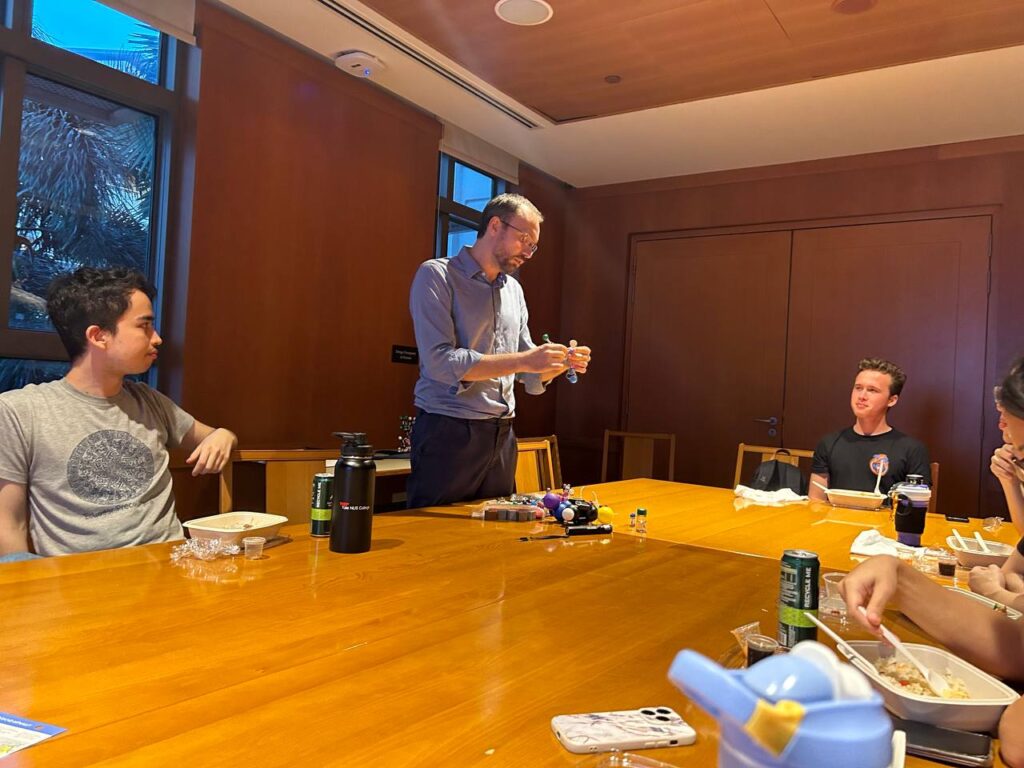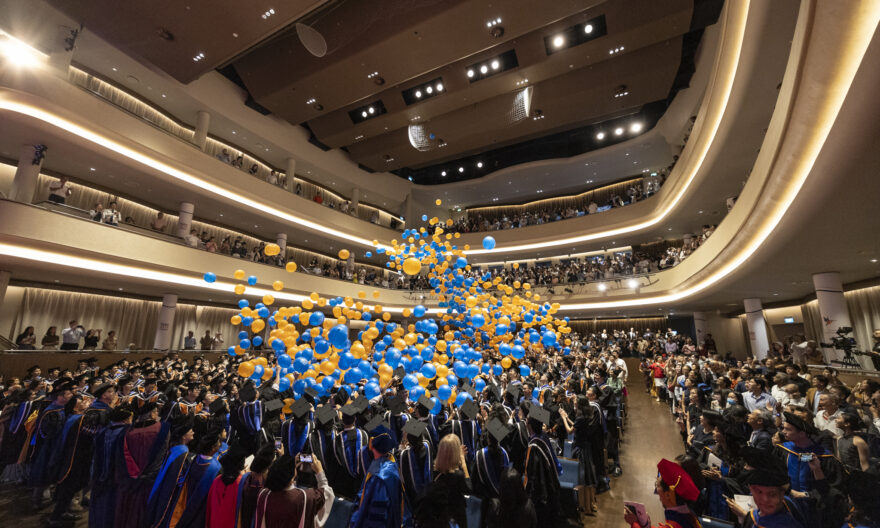Yale-NUS Dinner Conversations
Faculty share their research candidly over a meal with the community

At Yale-NUS College, faculty conduct Dinner Conversations for the community to learn about their research over a meal on campus. This semester, four talks were organised across topics that interlinked disciplines such as philosophy, literature, law, ecology, and the physical sciences. Crossing diverse academic streams, the Yale-NUS Dinner Conversations exemplify the liberal arts experience at the College.
Assistant Professor of Science (Chemistry) Stanislav Presolski, who teaches modules such as Experimental Methods in Physical Science and Accelerated Organic Chemistry, led a Dinner Conversation titled “The Click Revolution” on 2 November.
Click chemistry is a special class of simple reactions that work without fail to link any two molecules together. During the event, Asst Prof Presolski talked about the paradigm shift in chemical synthesis where researchers switched from using complex, equipment-intensive methods to simpler, water-based methods. This made chemical synthesis more accessible to everyone from biologists developing new vaccines to industrial chemists preparing novel plastics.
Asst Prof Presolski explained how this method thus enabled a rapid growth in many fields such as polymer science, drug discovery, chemical biology, immunology, and even experimental medicine, where the reaction can even take place in the body of the patient to locate the source of cancer. This method is now widely used in research labs around the world, including at Yale-NUS College.
On his motivation for hosting the Dinner Conversation, Asst Prof Presolski shared, “I did my PhD on the mechanism of the first click reaction and knew Dr Sharpless, the scientist who coined the term “click chemistry”, personally, as well as other researchers who were intimately involved in the creation of the “click chemistry” concept and its applications. It was a great opportunity to introduce the topic and share some behind-the-scenes anecdotes from the major players in the field with the community.”
One of the guests who attended the Dinner Conversation was Rector and Associate Professor of Science (Life Sciences) Khoo Hoon Eng. During the event, Rector Khoo contributed to the conversation with her insights from life sciences.
Asst Prof Presolski said, “Rector Khoo raised very good points about enzymes doing something similar to what I was describing, which led us to talk about whether and how chemists can accomplish functionally similar tasks, but with much smaller catalysts and without the need for life. The Dinner Conversations series Yale-NUS enables faculty to connect with each other and share more about their research, while encouraging students to learn from different disciplines.”
Audrey Jeong (Class of 2024), who attended the event, enjoyed learning about this complicated topic in a simplified way. “Prior to “click chemistry”, a lot of chemistry revolved around making super complicated molecules with even more complicated procedures and crazy solvents. With “click chemistry” being easily conducted in water and its higher yields, the scope of organic chemistry research has been further enriched,” Audrey shared.
During the course of the semester, other professors also covered different topics. For example, Senior Lecturer of Science (Chemistry) Chan Kiat Hwa led a dinner discussion on the widespread use of plastics in our daily lives and shared practical ways to reduce the usage of plastic in society.
Associate Professor of Humanities (Literature) Geoff Baker talked about the intriguing relationship between belief and evidence using 19th century British works, while Senior Lecturer of Social Sciences (Environmental Humanities, Sustainable Agriculture) Todd Jared LeVasseur explored ecospirituality through a gender and environmental lens, which influenced how various gendered and sexed bodies interact with the non-human world.
In the upcoming semester, Yale-NUS faculty members hope to organise more sessions for the community. As Rector Khoo shared, “We hope to continue this tradition of learning as long as we have faculty and, occasionally, visitors and alumni, who are happy to share their interests and research with us.”





